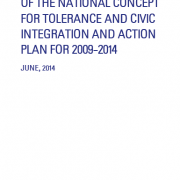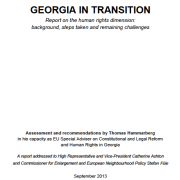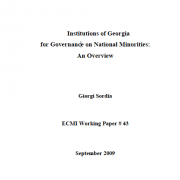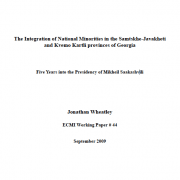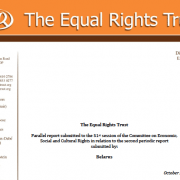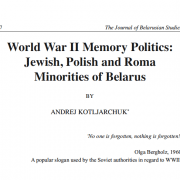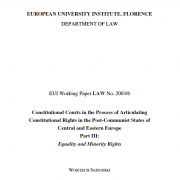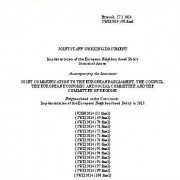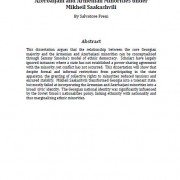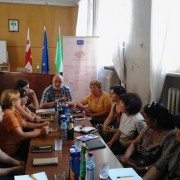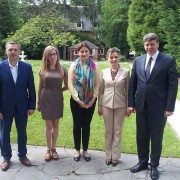The National Concept for Tolerance and Civic Integration is based on the Constitution of Georgia, as well as Georgia’s international responsibilities. In order to assure a broad public consensus, all interested parties were given the opportunity to participate in the process of developing the Tolerance and National Integration Strategy and Action Plan. The document was […]
Read more
The Introduction of the report gives brief summaries of the main concerns and reflections of the EU Special Adviser on Constitutional and Legal Reform and Human Rights in Georgia. The body of the report goes deeper into seven key areas in relation to human rights: judiciary, penitentiary, law enforcement, minority rights, political participation, freedom of […]
Read more
This paper aims to discuss the institutional set-up around civil integration and minority protection issues in Georgia since the ‘Rose Revolution’, and the study reviews the state structures relevant for governance and legislative practices on civil integration and minority issues. It seeks to provide an overview of the institutional problems that beset civic integration by […]
Read more
This paper aims to explore the extent to which national minorities in the Georgian provinces of Kvemo Kartli and Samtskhe-Javakheti are integrated into the economic and political life of Georgia and to investigate how government policy in the aftermath of the Rose Revolution of November 2003 has affected the relationship between the state and minority communities […]
Read more
The purpose of the joint research is to show the practice of funding religious organizations by the state. For that purpose the research studies the scope and aim of financial resources and other tangible benefits transferred from the state to religious associations, also from the state budget, the President’s and government’s reserve funds as well […]
Read more
This parallel report focuses on the extent to which Belarus has met its obligations to respect, protect and fulfil the rights to equality and non-discrimination. The submission is concerned with Belarus’s performance under Article 2(2) of the International Covenant on Economic, Social and Cultural Rights, and with the impact which discrimination has on the enjoyment […]
Read more
The aim of this study is to interpret recent trends in contemporary memory politics in Belarus, with focus on the Holocaust, Roma genocide memorials, and the memorial sites of the Polish minority in Belarus. It analysis contemporary Belarusian memory politics with respect to World War II, through the examination of the Soviet period.
Read more
This paper analyses the constitutional rights by the constitutional courts of Central and Eastern Europe (CEE), in particular, the equality and anti-discrimination clauses. The CEE is a wide and untidy mosaic of ethnic, national and religious minorities, and communism often tried to stop any open expression under the official national unity. After the fall of communism, nationalistic […]
Read more
The progress report Statistical annex provide information about the EaP countries indicators regarding democracy, human rights and governance. The publication release an updated list of countries ratification of selected human rights conventions and global indicators as Transparency International Corruption Perception Index (2012-2013), Freedom House: Freedom in the World Index, Gender Inequality Index (2013), Global Gender […]
Read more
This dissertation argues that the relationship between the core Georgian majority and the Armenian and Azerbaijani minorities can be conceptualised through Sammy Smooha’s model of ethnic democracy. Scholars have largelyignored instances where a state has not established a power‐sharing agreement with the minority, yet conflict has not occurred. This dissertation will show that despite formal […]
Read more

